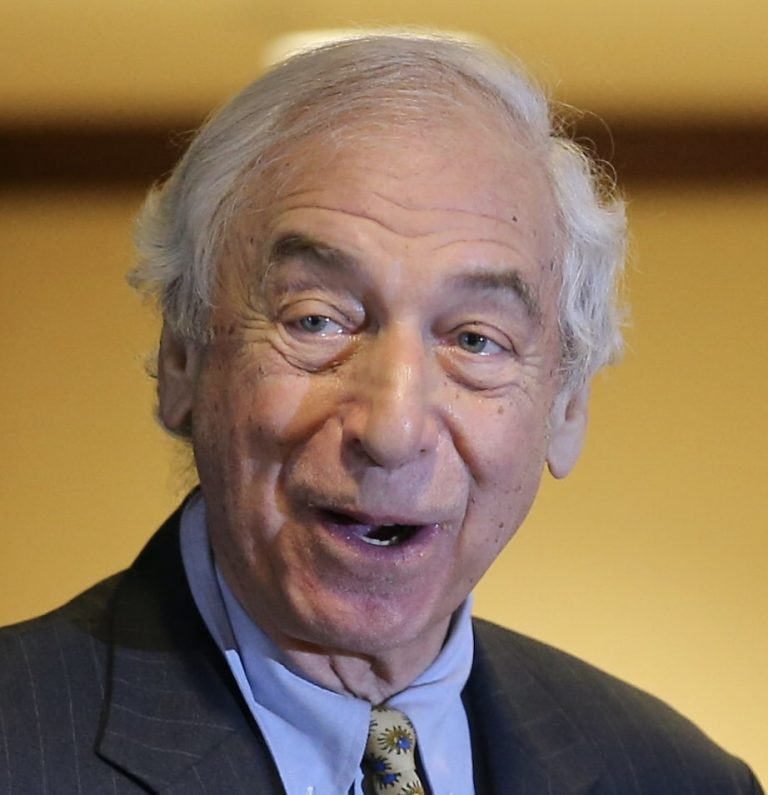Famed astronomer and eclipse-chaser Professor Jay Pasachoff dies at 79
December 7, 2022

Professor of Astronomy Jay Pasachoff died of complications from lung cancer in his Williamstown home on Nov. 20. He was 79. At the time of his death, Pasachoff was the longest-serving faculty member at the College, the chair of the astronomy department, and the director of the Hopkins Observatory. He had also witnessed 74 solar eclipses — as many as any human in history. He is fondly remembered by faculty and students alike.
“Jay was always a passionate advocate for astronomy at Williams and an ambassador for the life-transforming nature of a total solar eclipse,” Lecturer in Astronomy and Observatory Supervisor Kevin Flaherty wrote to the Record. Pasachoff helped propel the field of astronomy forward: He taught for 50 years, published hundreds of academic papers, and authored numerous textbooks for students from elementary through graduate school.
Pasachoff fell in love with astronomy as a child. In high school, he created a mirror for a telescope, grinding and polishing away in the basement of the Hayden Planetarium in Manhattan. As a 16-year-old first-year at Harvard, he witnessed his first total solar eclipse while aboard an airplane flying over the coast of Massachusetts. He wrote about that experience in his journal, which he later published as part of a 2010 op-ed in The New York Times: “As the full Moon covered the Sun and the sky darkened to black, the Sun’s corona outlined the Moon in white. I was hooked.”
Pasachoff joined the faculty at the College in 1972, and over the next 50 years, he led dozens of current and former students on voyages across the world, from Siberia to Java to Rajasthan, to witness solar eclipses. After experiencing his first total eclipse in 1960, Pasachoff only missed two others: one in 1968 due to the Soviet Union’s invasion of Czechoslovakia and another in 2020 due to the COVID-19 pandemic.
The world recognized Pasachoff as a leader in his field. He was chair of the International Astronomical Union’s Working Group on Solar Eclipses, a fellow of the Royal Astronomical Society, and the recipient of numerous awards ranging from the Education Prize of the American Astronomical Society to the Richtmyer Memorial Lecture.
“Pasachoff’s passion for astronomy and science extended to everyone, from his talks and books to his technical and general interest articles for numerous publications,” Assistant to Professor Pasachoff Madeline Kennedy wrote to the Record. “He will be missed by many, personally and in the scientific community.”
Pasachoff’s commitment to his students inspired his peers and protégés. “As his colleague for 40 years, I saw firsthand how dedicated he was to his goal of inspiring interest in astronomy among all his students,” Professor Emerita of Astronomy Karen Kwitter wrote to the Record. “His efforts brought recognition to Williams, and in a broader context, demonstrated the power of distinguished and committed faculty at a small liberal arts college to educate the next generation of astronomers.”
Many of Pasachoff’s former students are now astronomers and astrophysicists, working at observatories across the globe. “He always worked to support and advocate for current and former students in their careers,” Assistant Professor of Astronomy Anne Jaskot wrote. “He leaves behind a strong legacy of education, scientific discovery, and public engagement.”
Renée DePencier Piñero ’23, an astrophysics major, described Pasachoff as the first academic figure to take her interest in astronomy seriously. “His enthusiasm for all things space and his own personal successes motivated me to pursue my interest in astrophysics with the confidence I could shape my life around it,” DePencier Piñero said.
Pasachoff witnessed his first solar eclipse in 1960 thanks to the support of one of his professors. Sixty-two years later, Pasachoff passed on the favor to two of his students — Anna Tosolini ’23 and Peter Knowlton ’21.5 — who watched what would be Pasachoff’s last eclipse with him in a plane above Antarctica. A fleet of spacecraft in orbit watched the eclipse alongside Pasachoff and his students — the result of decades of development in a field that Pasachoff helped pioneer.
“There was one moment where the moon was completely covering the sun, and we were all frantically taking these images,” Tosolini said. “But after a minute had passed, Jay looked at all of us and said, ‘Everyone, put your cameras down. Let’s just look and appreciate this moment.’”
Knowlton saw firsthand Pasachoff’s ability to unite people. “I’ve seen an outpouring of support from all of the people whose lives he’s influenced, from Greece to Chile to Arizona,” he said. “I’ve seen them finding comfort in sharing their memories of Jay with one another, and I count myself lucky to be among them.”







